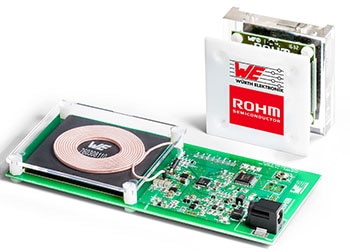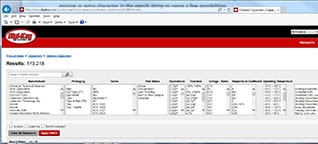Basics of Connectors
I recently published an extensive “Connector Tutorial” article in which I covered several different styles of connectors and where they may be found within the industry, along with how to navigate the DigiKey website to find all the appropriate tooling, contacts, and accessories for these products. This brief blog post will give an overview of all the different types of connectors in the industry.

Whether designing a new product or working on an older product, knowledge of connectors is a great tool to keep in the tool box. Connectors are a huge part of the electronics industry. These are often not taught about in school, but rather learned about on the job. When I went to school, I learned about banana jacks and plugs for testing purposes, but beyond that I was pretty much in the dark on connectors. After working at DigiKey for a while, connectors have become an everyday part of my life.
The article covers many different styles of connectors ranging from:
- Rectangular connectors
- Rectangular in shape
- Often used in consumer products
- Typically used to connect wire to board
- Circular connectors
- Easier to get a higher IP rating
- Easy to panel mount because of the shape
- Many mil spec circular connectors
- Terminal blocks
- Insulator separating every circuit
- Can be pluggable or mounted onto a chassis
- Pluggable versions can mate between manufacturers assuming distance between pins is the same
- D-sub connectors
- Standardized shell sizes
- Good for signal level communications
- Often have power and/or coaxial positions built in
- Barrel connectors
- Often used for power
- Often used for audio
- Standard sizes allow mating between manufacturers
- USB connectors
- Often used for power and data
- Standard sizes allow mating between manufacturers
- Coaxial connectors
- Used for high frequency applications
- Standardized types which allows mating between manufacturers
The Connector Tutorial article provides much more detailed descriptions of each style of connector and hopefully helps to shed some light into the world of connectors.

Have questions or comments? Continue the conversation on TechForum, Digi-Key's online community and technical resource.
Visit TechForum









